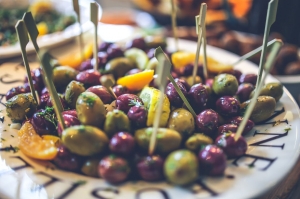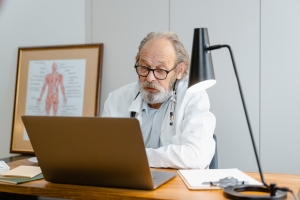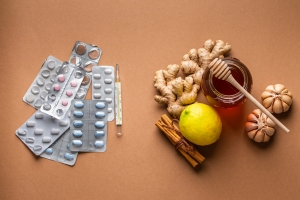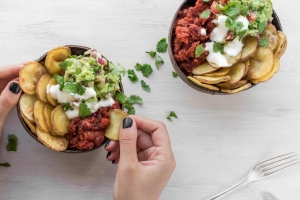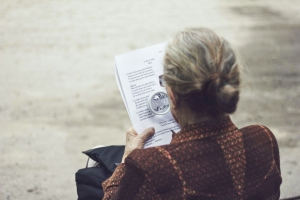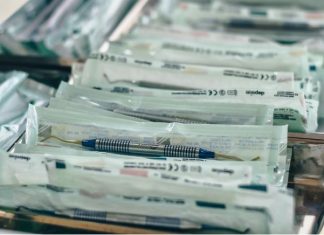Giardiasis is an intestinal infection caused by the Giardia parasite. This parasite can cause symptoms such as diarrhea, cramps, bloating, fatigue, and nausea, leading to dehydration and malnutrition if left untreated. Proper dietary management, along with prescribed medications like Nizonide 500 mg, plays a crucial role in recovery. Below is a detailed guide on what foods to eat and avoid while recovering from giardiasis.
Understanding the Role of Nizonide 500mg
Nizonide 500 mg, an antiparasitic medication containing Nitazoxanide, is often prescribed to treat giardiasis. It works by disrupting the energy production of the Giardia parasite, helping to eliminate it from the body. While nizonide 500mg effectively fights the parasite, its side effectssuch as nausea and stomach pain can make food choices during recovery even more important.
Foods to Eat for Giardiasis Recovery
The right foods can aid in soothing your digestive tract, rehydrating your body, and restoring lost nutrients. Here's a list of beneficial foods for recovery
1. Bananas
Bananas are gentle on the stomach and rich in potassium, an essential electrolyte often depleted during bouts of diarrhea. Bananas are also high in pectin, a type of fiber that can help absorb excess liquid in the intestines, aiding in stool formation.
2. Rice, Applesauce, and Toast
The BRAT diet (bananas, rice, applesauce, and toast) is often recommended for managing diarrhea. These foods are low in fiber, making them easy to digest, while helping to firm up stool. Rice and toast provide simple carbohydrates that the body can quickly break down for energy, supporting recovery.
3. Clear Broths and Soups
Clear broths are excellent for replenishing fluids and electrolytes lost during diarrhea. Broths can provide nutrients without putting too much strain on the digestive system. Additionally, soups with well-cooked vegetables or lean proteins can offer vitamins and minerals essential for recovery.
4. Yogurt with Probiotics
Yogurt containing live and active cultures can help restore healthy gut bacteria that may have been disrupted by the infection and medication. Probiotics in yogurt (like Lactobacillus and Bifidobacterium) can aid in reducing symptoms and restoring gut health. Opt for plain, unsweetened yogurt to avoid unnecessary sugars that could irritate your digestive tract.
5. Boiled Potatoes
Boiled potatoes are mild and easy to digest, providing a good source of potassium and carbohydrates. Like bananas, potatoes help replenish lost electrolytes and give you the energy needed to recover without straining your digestive system.
6. Steamed Vegetables
Non-fibrous, steamed vegetables like carrots and zucchini are soft and gentle on the digestive tract, providing essential vitamins and minerals. Cooking vegetables makes them easier to digest, so stick to soft, low-fiber options to avoid gastrointestinal irritation.
7. Plain Crackers
Plain, unsalted crackers can be a simple snack when your stomach feels too sensitive for larger meals. They are gentle on the stomach, and their bland nature minimizes the risk of triggering any digestive discomfort.
8. Lean Protein
Sources like skinless chicken breast, turkey, or fish are excellent options for protein without adding extra fat, which can be difficult to digest. Protein is essential for repairing tissues and maintaining strength, so incorporate lean sources as you feel able.
Foods to Avoid While Recovering from Giardiasis
While on Nizonide 500 mg and recovering from giardiasis, certain foods should be avoided to prevent aggravating symptoms or delaying healing. These include foods that can irritate the gastrointestinal tract or are difficult to digest.
1. High-Fat Foods
Foods high in fat, such as fried foods, fast food, heavy sauces, and fatty meats, are harder for the body to digest. Fatty foods can increase nausea and bloating, especially when the digestive system is already compromised.
2. Dairy Products (Other Than Yogurt)
Lactose intolerance is common in those recovering from giardiasis, as the infection can temporarily damage the lining of the intestines, reducing the body's ability to digest lactose. Milk, cheese, and other dairy products may lead to gas, bloating, and diarrhea. However, yogurt with probiotics may help some people, as mentioned above.
3. Caffeinated Drinks
Coffee, tea, and energy drinks containing caffeine can stimulate bowel movements and irritate the digestive tract. Caffeine is also a diuretic, which can exacerbate dehydration. Avoid caffeinated drinks until your digestive system has fully recovered.
4. Sugary and Artificially Sweetened Foods
High sugar intake can lead to increased gas and diarrhea. Foods with artificial sweeteners, such as sorbitol or xylitol, can also irritate the gut and worsen symptoms. Avoid sugary snacks, candies, sodas, and desserts during recovery.
5. Spicy Foods
Spicy foods, including those seasoned with hot peppers or spices like chili powder, can irritate the stomach lining and intestines. These foods may exacerbate abdominal pain, nausea, and diarrhea, so it's best to steer clear until you've fully recovered.
6. High-Fiber Foods
While fiber is typically beneficial for digestion, high-fiber foods can be challenging for a recovering digestive system to process. Foods such as raw vegetables, whole grains, and legumes can lead to increased gas and bloating. Focus on low-fiber options until your body can handle fiber again.
7. Alcohol
Alcohol can irritate the gut lining and interfere with the effectiveness of Nizonide 500 mg, slowing recovery. Alcohol can also dehydrate the body, which is counterproductive when trying to rehydrate after symptoms like diarrhea.
Additional Tips for Recovery
Here are some additional dietary and lifestyle tips to help manage giardiasis symptoms and speed up recovery
Stay Hydrated
Dehydration is a primary concern in giardiasis, so drink plenty of water, electrolyte-replacement solutions, or oral rehydration salts. Clear broths, coconut water, and diluted fruit juices are also good options.
Eat Small, Frequent Meals
Eating smaller, more frequent meals can help your body absorb nutrients without overwhelming your digestive system. Large meals may lead to bloating or discomfort, so take it slow.
Reintroduce Foods Gradually
Once your symptoms start improving, you can gradually reintroduce foods to test your body's tolerance. Begin with low-fiber options, and slowly add more variety as you recover.
Avoid Physical Strain
Fatigue is common in giardiasis. Rest and avoid physically demanding activities to allow your body the energy needed for healing.
Complete the Full Course of Nizonide 500mg
Even if you feel better, it's crucial to complete your prescribed course of Nizonide 500 mg to ensure all parasites are eliminated. Stopping medication early can lead to reinfection or drug resistance.
Conclusion
Recovering from giardiasis requires a combination of medication and a carefully managed diet. While taking Nizonide 500 mg, focus on foods that are easy to digest and rich in electrolytes to combat dehydration and malnutrition. By avoiding irritants like high-fat, high-fiber, and sugary foods, you give your digestive system the rest it needs to fully recover. With proper diet and medical support, you can expect to overcome giardiasis and return to health.
